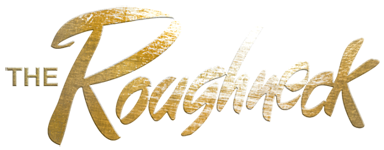
By Maurice Walch
I spend most of my professional time engineering plans for my clients to assist them in achieving their financial objectives so they can maintain their lifestyle in retirement. But what defines a successful retirement? As a planner I get the opportunity to watch hundreds of people retire. While financially they have all they require, some of them thrive in retirement and others just seem to survive it. Why do some people enjoy retirement more than others?
Recently I connected with Calgary based personal coach Rebecca Garland to offer my clients the opportunity to create a Retirement Vitality Map. This is a holistic retirement plan in which we are not talking at all about finances, but rather seek to answer four key questions about retirement.
1. How will we replace our work identity?
2. How will we ensure we spend our retirement doing meaningful tasks?
3. How will we maintain our connections with family and friends?
4. How will we stay mentally and physically sharp?
In essence, how will we live our retirement with passion.
Just as a written financial plan is fundamental to being able to afford your desired lifestyle, a written retirement vitality plan increases the odds that you will thrive in retirement. As opposed to identifying investment risk tolerances and monthly burn rates, we discussed creating a written plan that identifies what a perfect day and week will look like in retirement. In order to create an environment that allows you to create this plan, there are three separate areas that need to be addressed.
Your Passion — It’s necessary to identify a passion or hobby that defines you outside of the work or home environment. A study was done in Russia in the 90’s that centered on finding out what made people happy. The study found that the happiest people were those who were working on something larger than themselves. This may be a charity, researching your family history, or anything else that gives you a reason to get up in the morning. This will provide the anchor for your plan.
Your Body – It’s highly important to have a regular exercise routine and follow nutritional guidelines. For a great book on the subject read “Younger Next Year” by Chris Crowley. I bought about six copies of this book before I could finish it, because I kept giving my copy to people I thought would appreciate it.
Your Social Life – Very important. Have you been invited to participate in four or more events with friends over the last month? If not, develop this habit. It helps you to stay current and engaged with people. It also keeps you humble as with any luck all your friends won’t agree with you all the time (real friends, not Facebook friends). They may challenge your thinking, forcing you to conduct some introspection and perhaps learn something new. Great for the grey cells, though perhaps not always for the ego.
In order for the above to truly enhance your retirement, they need to align with your core values. Ms. Garland suggests an exercise to help you with this. She identified what she referred to as “Rock – Bottom Values” in other words, things that you rate as most fundamental to your personal well-being. 1. Love & Connection, 2. Peace, 3. Freedom, 4. Joy, 5. Beauty, 6. Fun & Laughter, 7. Learning & Growth, 8. Spirituality. Rank these in terms of importance to you and make sure that whatever you plan to do in retirement is in line up with your top three rock bottom values. If what you do in retirement does not line up with these, you are less likely to feel fulfilled and enjoy what you are doing.
Retirement coach Robert Laura coined a great phrase when he said “retirement is like an echo of your current life.” You don’t want that echo to fade too quickly, so do what you can now to ensure that echo resounds when you retire.
#Retirement #Vitality #Finances #Financial #MauriceWalch #MoneyMatters #TheRoughneck






